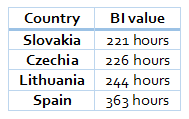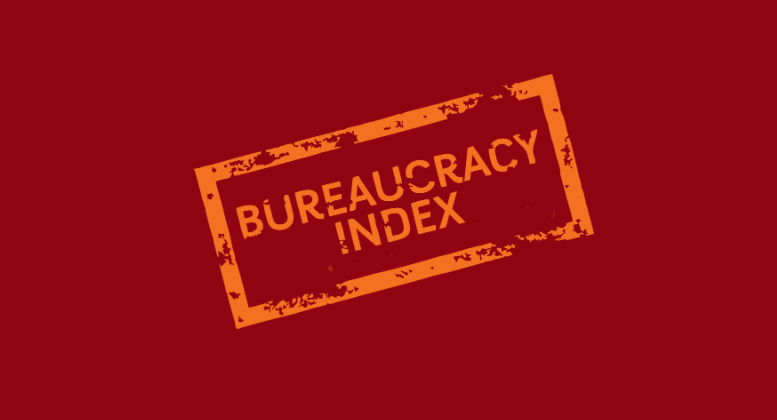
Everyone wants to fight red tape – the European Union, governments, politicians. Well, at least according to their proclamations, party programs, and numerous conferences.
Yet, bureaucracy is still a burden for both entrepreneurs and ordinary citizens. One of the reasons why the political “fight” has not achieved remarkable success in fighting the red tape, is a missing connection between politics and the everyday life of entrepreneurs. Bureaucracy Index (BI) aims wants to bridge this distance.
Slovakia, Spain, Czechia, and Lithuania participated in red tape cost calculation affecting local micro companies.
Following a one-year long operation of a model industrial micro-company with 4 employees, BI identifies each and every bureaucratic duty this company has to struggle with during the year.
Each of these duties is then assigned time cost value. The resulting total time cost show how much time the entrepreneur has to devote to feed the hydra of bureaucracy.
Four think tanks from four countries participated in the Bureaucracy Index project this year: the BI founder, INESS from Slovakia, Civismo from Spain, LFMI from Lithuania, and Liberal Institute from Czech Republic.
The analyzed bureaucratic duties were divided into three categories: employment, operation, and other.
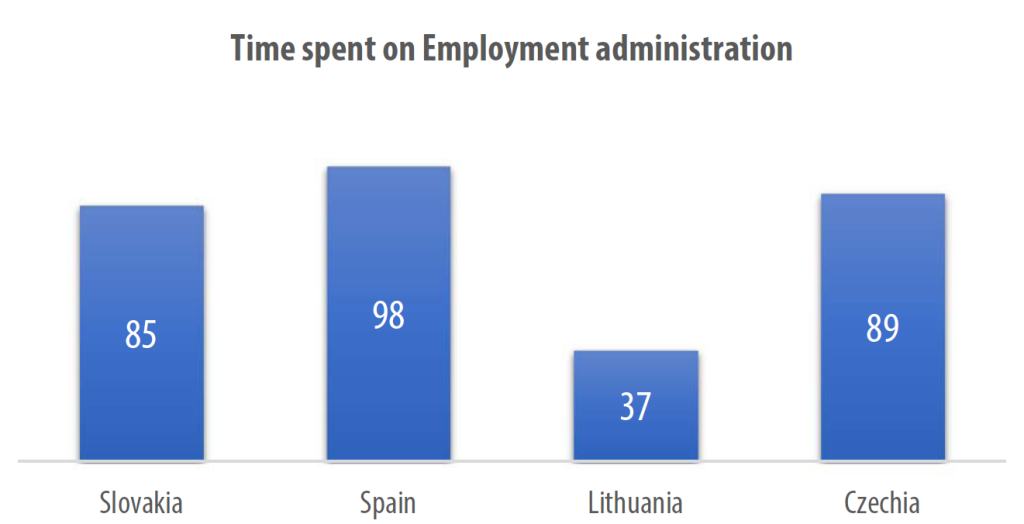 Employment administration includes hiring and firing agenda, worktime recording and management, H&S agenda, but also administration of employees’ taxes and contributions (if required by law) and operations.
Employment administration includes hiring and firing agenda, worktime recording and management, H&S agenda, but also administration of employees’ taxes and contributions (if required by law) and operations.
Slovakia, Spain and Czechia recorded similar time cost for this agenda, with only Lithuania scoring substantially better.
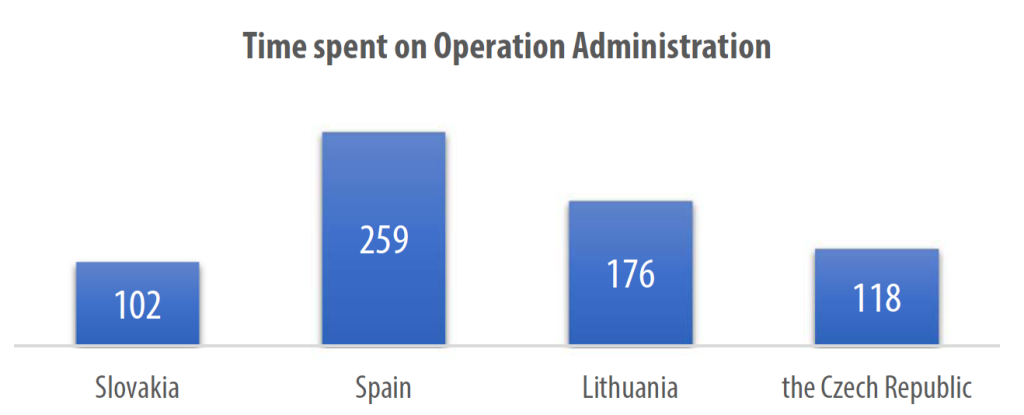 Operation agenda includes actions such as company vehicle registration and deregistration, waste management, dealing with obligatory external services (certification of various kind), and tax compliance – corporate, vehicle, property, and other.
Operation agenda includes actions such as company vehicle registration and deregistration, waste management, dealing with obligatory external services (certification of various kind), and tax compliance – corporate, vehicle, property, and other.
Spain stands out in this category, especially for high time cost of tax compliance.
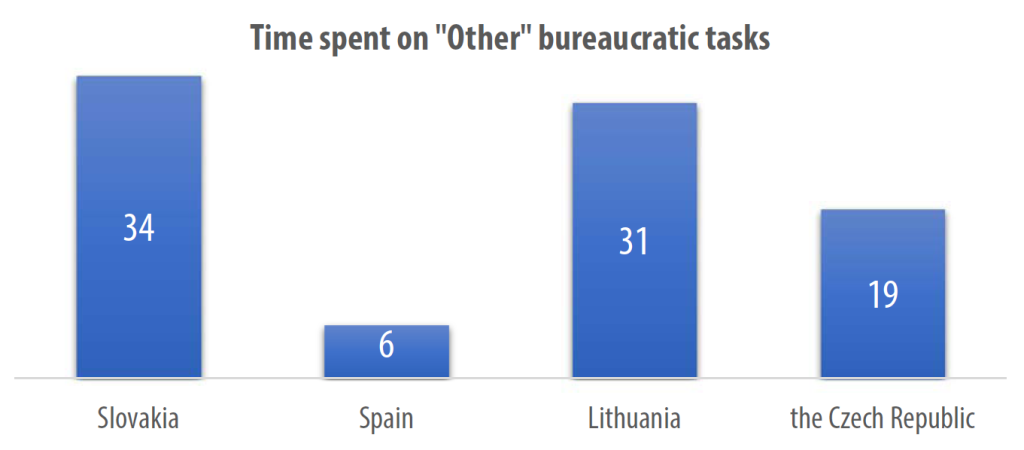 The “other” category includes various one-time duties (like introduction of obligatory cash e-registers in Slovakia in 2019), legal changes, or obligatory statistical reporting.
The “other” category includes various one-time duties (like introduction of obligatory cash e-registers in Slovakia in 2019), legal changes, or obligatory statistical reporting.
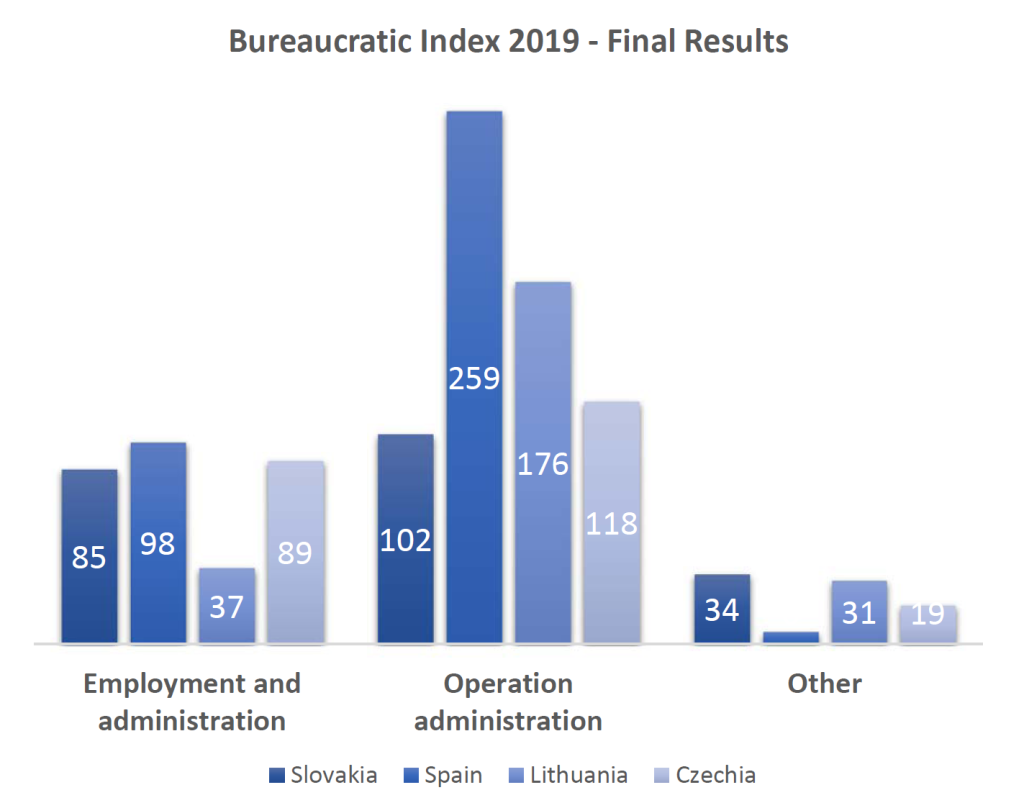 Bureaucracy Index should serve as a point of reference and a set of recommendations for potential reforms, pointing to the very specific bureaucratic duties which create the biggest burden for local SMEs.
Bureaucracy Index should serve as a point of reference and a set of recommendations for potential reforms, pointing to the very specific bureaucratic duties which create the biggest burden for local SMEs.
The Index is also intended to commemorate September 29 – International Bureaucracy Day. It has an ambition to be a moral incentive for entrepreneurs, accountants, administrators, lawyers, and all those who are forced to sacrifice the precious time of their lives on the altar of bureaucracy by filling out forms and documents.

